Sunday, May 18, 2025, 1:00 – 2:00 pm, Banyan/Citrus
Organizers: MiYoung Kwon (VSS Board of Directors) and Paola Binda (VSS Board of Directors)
Moderator: Paola Binda, University of Pisa
Discussants: Constantin Rothkopf, Technical University of Darmstadt; Tessa Dekker, University College London; Michael Herzog, EPFL – École polytechnique fédérale de Lausanne; Frans Verstraten, The University of Sydney.
Exploring Funding Landscapes Across Europe, the UK, Switzerland and Australia
This workshop offers an opportunity to hear how researchers around the world navigate research funding opportunities through country-specific and international mechanisms. The comparison of different systems will provide context and highlight the diversity of funding environments. With a focus on major funding bodies in Europe, the United Kingdom, Switzerland and Australia, the session will provide strategic insights into securing competitive research grants and fostering global research collaborations.
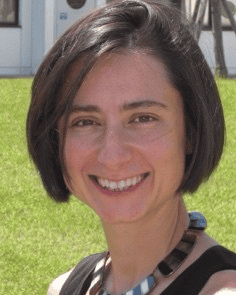
Paola Binda
University of Pisa
Paola Binda is associate professor at the University of Pisa, Italy. She trained in Milano (PhD) and Seattle (post-doc), in the fields of active vision and plasticity. Her research is mainly funded by the European Research Council (ERC Starting grant “Pupiltraits”, 2019-2024; ERC Consolidator grant “PredActive”, ongoing). As a trainee, she benefited from a Marie Sklodowska Curie “Global Fellowship”; as faculty, she is member of a recently funded Marie Sklodowska Curie “Doctoral Network” supporting coordinated PhD programs across multiple European institutions.
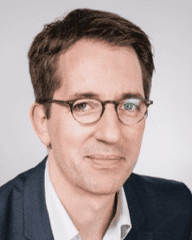
Constantin Rothkopf
Technical University of Darmstadt
Constantin Rothkopf is director of the Center for Cognitive Science and Professor at the Institute of Psychology with a secondary appointment in the Computer Science Department at the Technical University of Darmstadt. He did a joint PhD in Brain and Cognitive Sciences and Computer Science at the University of Rochester with Mary Hayhoe and Dana Ballard. His research investigates how vision, cognition, and action are intertwined in naturalistic, extended sequential visuomotor behavior, including tasks such as food preparation and navigation. His research methods involve both behavioral studies, often tracking body and eye movements, and computational modeling, often using probabilistic control models, including developing inverse models in machine learning. His work has been published in journals like Nature Communications and PNAS and machine learning conferences like NeurIPS, and AAAI. He has acquired multiple grants including an ERC Consolidator Grant for his project “ACTOR”.
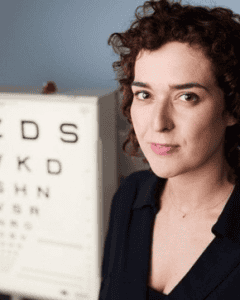
Tessa Dekker
University College London
Tessa Dekker is a developmental cognitive neuroscientist studying how we learn to see. She leads the Child Vision Lab at University College London (UCL) in the UK, based across the Institute of Ophthalmology and Experimental Psychology. Their research investigates how the developing and adapting brain processes and uses visual information, and how this is affected by eye disease and emerging sight-restoring treatments. Tessa completed her PhD in 2012 at Birkbeck, University of London, followed by a postdoc at UCL with Marko Nardini. From 2016, she has held fellowships from the UK Research and Innovation Economic and Social Research Council, Moorfields Eye Charity, and currently the Wellcome Trust, as well as other industry and charity funding. Since 2020, she is an Associate Professor at UCL, working with a fantastic team that you can meet at https://childvisionlab.co.uk. One of her Departmental roles is to support early career researchers in fund-raising in the UK.
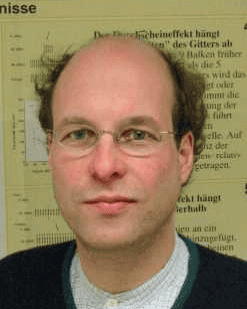
Michael Herzog
EPFL – École polytechnique fédérale de Lausanne
Michael Herzog studied Mathematics (1992), Biology (1992), and Philosophy (1993) at the Universities of Erlangen, Tübingen, and at MIT. In 1996, he earned a Ph.D. in biology from the University of Tübingen. He was a post-doc at Caltech (1998-1999) and a senior researcher at the University of Bremen (1999-2004). Since 2004, he is the head of the Laboratory of Psychophysics at the EPFL in Switzerland hosting its own EEG, TMS, eye tracking, behavioral and computer simulation platforms.
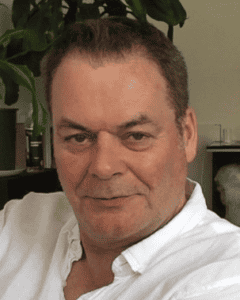
Frans Verstraten
The University of Sydney
Frans Verstraten is the current McCaughey Chair of Psychology at the University of Sydney. A VSS board member from 2010-2015 and VSS president in 2013-2014. He studied Experimental Psychology at the Radboud University in Nijmegen and obtained his PhD from Utrecht University (1994). After positions in Canada (McGill, UToronto), USA (Harvard) and Japan (ATR), he became a full professor at Utrecht University in 2000 until his departure to Sydney in 2012. He is one of the editors-in-chief of the journals Perception and iPerception and has successfully written several grants, where the Pioneer Grant (about 2 million US$) by the Netherlands Organisation for Scientific Research was the most prestigious. He has served as a member of grant funding committees in several countries.
